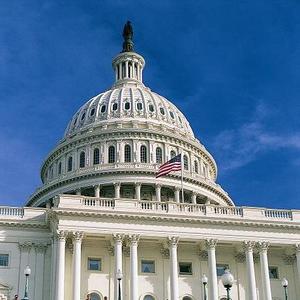US House bill to reform, renew biodiesel tax credit through 2020

May 5, 2017
BY The National Biodiesel Board
The National Biodiesel Board applauded the introduction of a bipartisan biodiesel tax credit bill in the U.S. House of Representatives that would convert the blenders credit for biodiesel to a $1-per-gallon production credit for fuels produced in the U.S. for years 2017-’20. The bill, H.R. 2383, led by U.S. Reps. Kristi Noem, R-South Dakota, and Bill Pascrell, D-New Jersey, provides an additional 10-cent-per-gallon credit for small U.S. biodiesel producers. Companion legislation was recently introduced in the U.S. Senate by Sens. Chuck Grassley, R-Iowa, and Maria Cantwell, D-Washington.
“We are thrilled to see momentum building in both chambers of Congress for this important tax reform,” said Anne Steckel, NBB vice president of federal affairs. “It is long overdue to close this loophole and better align the incentive with Congress’ intent—to invest American taxpayer dollars to spur job creation here at home. We look forward to working with Congress to move this proposal forward. After all, the U.S. biodiesel industry supports more than 50,000 jobs.”
Advertisement
Advertisement
This bipartisan bill seeks to reinstate the biodiesel and small producers tax credits that expired at the end of 2016, but with a change to who is eligible for the credit. Previously, the tax credit was open to blenders of biodiesel, but this legislation would provide tax credits to U.S. producers instead of blenders. Doing so prevents subsidization of foreign manufacturers.
Taxpayer dollars and U.S. energy policy should be—and typically are—aimed at incentivizing domestic production, not foreign production. The current structure of the biodiesel tax incentive as a blenders credit increasingly allows foreign producers to access the credit if their fuel is blended in the U.S. Importantly, this reform would not block imported biodiesel from entering the U.S. market; in fact, significant imports would likely continue coming to the U.S. and receiving incentives under the RFS and California’s low carbon fuel standard.
Advertisement
Advertisement
U.S. biodiesel producers just need a level playing field to compete with foreign production. For example, since 2009, the European Union has levied duties on U.S. biodiesel that effectively block U.S. biodiesel from entering the European market. At the same time, U.S. policy is incentivizing European biodiesel shipments to the U.S. by rewarding it with the $1-per-gallon credit. Additionally, Argentinian biodiesel that receives significant incentives under that country’s differential export tax (DET) regime is increasingly being shipped to the U.S. market where it also can qualify for the U.S. tax incentive. Without this reform, U.S. tax policy is increasingly creating competitive disparities in which U.S. companies are losing U.S. market share to subsidized foreign production in Europe, Argentina and other nations.
Changing the structure of the tax credit also would save taxpayers millions of dollars. Biodiesel imports to the U.S. have grown sharply in recent years, largely as a result of the tax credit. In 2015 alone, the U.S. Treasury spent more than $600 million on tax credits for imported biodiesel and renewable diesel. Importantly, this fuel often had already received subsidies in its country of origin (Argentina, Indonesia and the EU, for example).
Related Stories
The USDA has announced it will delay opening the first quarterly grant application window for FY 2026 REAP funding. The agency cited both an application backlog and the need to disincentivize solar projects as reasons for the delay.
CoBank’s latest quarterly research report, released July 10, highlights current uncertainty around the implementation of three biofuel policies, RFS RVOs, small refinery exemptions (SREs) and the 45Z clean fuels production tax credit.
The U.S. EPA on July 8 hosted virtual public hearing to gather input on the agency’s recently released proposed rule to set 2026 and 2027 RFS RVOs. Members of the biofuel industry were among those to offer testimony during the event.
The USDA’s Risk Management Agency is implementing multiple changes to the Camelina pilot insurance program for the 2026 and succeeding crop years. The changes will expand coverage options and provide greater flexibility for producers.
President Trump on July 4 signed the “One Big Beautiful Bill Act.” The legislation extends and updates the 45Z credit and revives a tax credit benefiting small biodiesel producers but repeals several other bioenergy-related tax incentives.
Upcoming Events










